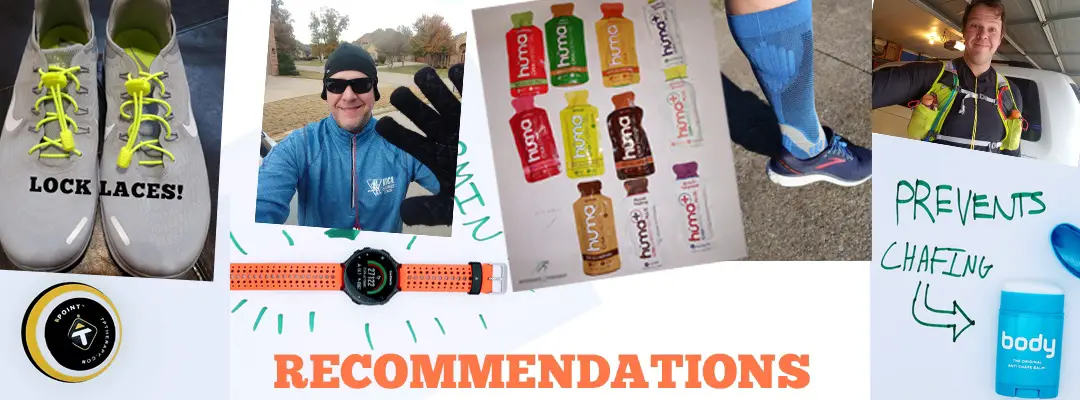So you’ve finally pushed yourself to try out a marathon? One of the key questions new runners ask themselves is long does it take to train for a marathon. So, how many weeks does it take to train for a marathon?
Marathon training plans last between 12 and 20 weeks in duration. Once you determine your level of physical fitness you can accurately determine how long it will take you to train for a marathon.
You’re going to find out everything you need to know to prepare to run your marathon. Whether this is your first time or even if you’re a veteran, we’ll cover all the bases to ensure that you’re aware of all the basics to complete the physical and mental challenges ahead of you. If you want to run a marathon, but you don’t exercise consistently right now, it may take several months to prepare yourself to run the full 26 miles of a marathon.
How Many Weeks To Train For A Marathon
As mentioned earlier, training for a marathon takes a minimum of 12 weeks, though it could take much longer for some people. Most of it depends on your current level of fitness and physical conditioning.
Remember: the length of a marathon is approximately 26 miles in total. If you want to run that distance at a consistent pace and with good timing, you must train consistently. Plus, you can’t start your first training session aiming to complete 26 miles in one sitting.
Instead, the marathon training process must be gradual. You will need to run a shorter distance first, and then go just a little further day by day.
Whether you’re a beginner or a veteran marathon runner, the length of your training sessions must increase only gradually. You can’t do all of it overnight!
That’s why it takes more time to train if you’re an absolute beginner. If you’re a couch potato with no running experience, for example, you’re starting from a much lower point. So, it’ll take much longer for you to be marathon-ready. Some plans stretch out as far as 24 weeks (roughly 6 months) to complete their marathon training.
if you’re an absolute beginner click here to dive deeper into: Can I run a marathon?
How To Train For A Marathon
When you start your marathon training program, always remember this piece of wisdom: it gets easier every day, but only if you do it every day.
People might use different approaches to training for a marathon, but the most crucial part of any program is to be consistent. You won’t be ready for a marathon if you train only once in a while when you feel like it.
When you first start, marathon training can be quite challenging. You might lose your breath just running down to the end of the street! But that’s perfectly fine, long as you maintain a consistent training schedule and follow it every day, if possible.
As with any physical training program, check with your doctor to make sure you’re alright to start training. Then, start small.
This can’t be stressed enough: start as small as you need to. For some people, walking around the block is already hard enough. There’s nothing wrong with that, as long as you start with something that you find challenging, and work your way upwards gradually.
The Importance Of Choosing A First Marathon
People who run marathons often sometimes take their passion all over the world. They’ll travel to different countries just to participate in the marathons taking place there. But why?
Related: How To Pack Your Suitcase For a Destination Running Race!
The reason is simple: not all marathons are the same. Many are urban marathons that take place on city streets. Others might take place in the countryside, or even in a jungle or on deep forest trails.
If you’re running your first marathon, it might be wise to choose a marathon that’s closer to home. No matter where you live, choosing a nearby marathon allows you to practice on roads that you’re familiar with.
Take into consideration the elevation gain for a marathon race. A high elevation gain is warning you that you’re in store for a course with lots of ups (hills/mountains). This will give you a much tougher first marathon race and will detract from your overall chip time. In short – select the flattest course possible for your first marathon.
For information on where to run your first half marathon (same information for a marathon) – check out:
Where should I run my first half marathon?
In some cases, you might even end up running a marathon on streets you’ve walked on since you were a kid! That gives you an advantage over many other racers because your mind and body are already familiar with the route you’ll be running.
The Four Building Blocks Of Marathon Training
You can’t ‘wing it’ when it comes to marathon training. Yes, many people indeed come up with their own training programs, but all of them tend to follow the same four building blocks of marathon training: basic mileage, long runs, speed training, and recovery. The principles of the four building blocks are always the same, even if people call them by different names.
Let’s look at each one in greater detail:
Weekly running volume
This tip refers to the regular running that you do several times a week. Before you’re ready for a full 26-mile marathon, you’ll need to gradually increase your basic mileage, including the time it takes for you to complete an average mile.
Long Runs
Even though you’re preparing for a marathon, it’s not advisable to run long distances every day. Instead, a better practice is to do a long run once a week or every ten days.
Speed Training
Some of your training sessions should emphasize speed. These might include training strategies such as interval training and tempo runs. Although speed training will help you improve your overall pace time and chip time, it is not necessary to include speedwork during your first marathon race. Most first marathon racers are simply trying to complete not compete.
I have written a complete post about speed training and if it’s necessary for a first marathon race (half marathon information but it’s the same for a marathon).
Recovery
Your body becomes better and stronger, not while you’re training, but as you rest afterward. That’s why rest and recovery together are probably one of the most important building blocks of marathon training.
Acquiring Sufficient Physical Fitness To Finish The Race
To many people, finishing a marathon is all about celebrating their physical fitness. Yet, many people forget that training for a marathon requires more than just running. Your flexibility, your strength, and the fuel you put into your body all play a role in preparing you for a marathon.
Stretching
Flexibility is critical when it comes to running a marathon, which is why you need to stretch as part of your training regimen.
Stretching allows for added mobility and flexibility in all of your muscles, especially those in your lower body. When you do this often, your whole body will be able to run faster and longer while minimizing the risk of injury.
Strength Training
Don’t worry; nobody’s saying you have to bulk up like a bodybuilder! Neverthelessessential, your ability to run a marathon will benefit significantly from adding a little strength training to your plan.
Of course, you shouldn’t focus only on one or two muscle groups when you do strength training. But your top priorities should be muscles like your glutes and hamstrings.
When you engage in strength training, you’ll reduce your risk of injury overall. But when you target your glutes and hamstrings, your legs will be able to push you forward with more power when you need it the most.
For a quick bodyweight strength training workout for runners check out (pictures included):
bodyweight strength training workout for runners (halfway down the post)
Also, check out the bodyweight card deck that I personally use to change up my bodyweight exercises on my recommendations page. Shuffle the deck, pick 20 cards, perform a random workout!
Nutrition
Just like a high-performance sports car, the fuel that you put into the system influences how well it performs. Your marathon training program is a great reason to throw out the junk food and start eating much cleaner, especially since it’ll improve your running times.

Building The Endurance And Mental Toughness
In the marathon-running world, one word that gets thrown around is ‘endurance’. That term breaks down into two categories: physical endurance and mental endurance. Quite often, it’s our minds that give up long before our bodies ever do.
The same is true in marathon running.
You see, building physical endurance is pretty straightforward, and we’ve discussed that earlier in this article. Training the mental toughness part is slightly more complicated.
The best advice for that? Positive self-talk. Remember: when you’re out there running, you are your own coach (inner critic vs. inner coach). Practice this by learning to talk to yourself positively and encouragingly. Like any muscle, this requires consistent practice, but once you get good at it, your self-encouragement will get you past the finish line!
Why Rest And Recovery Are Important
When you train for a marathon, you’re forcing your muscles and your organs to grow stronger. Your heart, lungs, and all your muscles are learning to cope with the added pressure and demands that you’re placing on them.
But they won’t get stronger if you repeatedly abuse them. That’s why your body requires plenty of rest and recovery to grow stronger and avoid burnout. When your body receives this, it’ll be able to repair itself and grow much stronger than it was the day before.
The Importance Of Hydrating And Fueling On The Run
On average, most people finish a marathon in about 5 hours. That’s five hours of burning energy, sweating lots of water, and pushing your mind to its limits. During this time, your blood glucose levels are sure to drop very low, sometimes dangerously low levels.
For that reason, it’s essential to keep hydrated and fueled at all times. Staying hydrated isn’t too tricky, as there’s usually water stations throughout the length of a marathon.
As for keeping the body fueled, most runners consume around 50-60 grams of carbohydrates per hour. These carbohydrates can be in the form of running fuel gels, dried fruits, or nut bars.
For a complete guide on how much to fuel for both half marathon and marathons races check out:
How to fuel for a half or full marathon
Also, check out my complete energy review:
Race Tips
Here are some quickfire tips for running your first marathon race:
- Wear clothes that won’t irritate your skin, like nylon t-shirts instead of cotton.
- Don’t push yourself too hard, too early; run a comfortable pace.
- Eat well and sleep well the night before.
- Rehydrate as you run, and in small amounts; sip, don’t gulp!
- Eat a hearty meal after the race to replenish your body.
Train hard, rest often, and keep hydrated; you’ll be a seasoned marathon runner in no time!
| Help support me and subscribe to my YouTube channel. YouTube video - 30 ways to make your runs less painful! Coach Scott's Credentials:
|
To sign up for a FREE half marathon training schedule, log sheet, and pace predictor CLICK HERE.

Recommended gear for runners
Connect with me:
| facebook.com/BeginnerToFinisher/ |


1 thought on “How Many Weeks Does It Take To Train For A Marathon?”